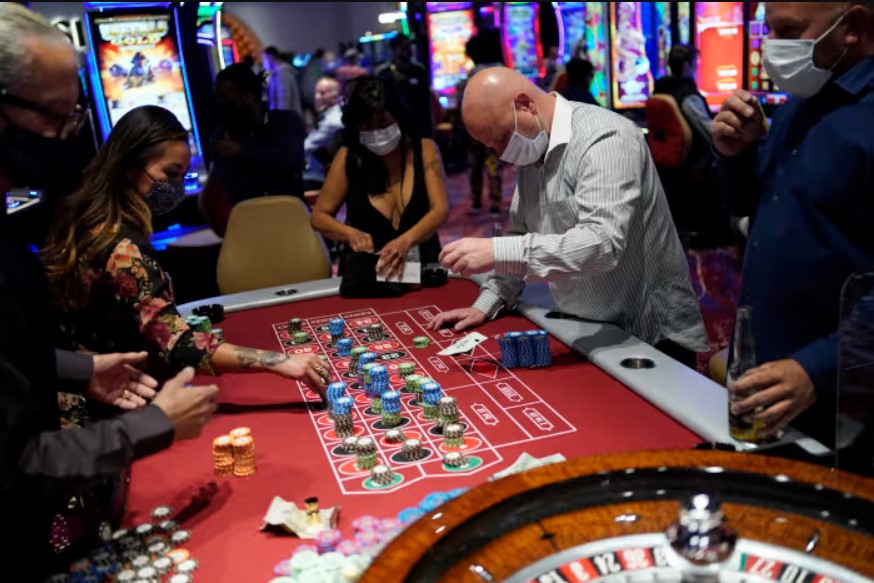When it comes to gambling, setting limits and practicing responsible gaming are essential aspects to ensure a safe and enjoyable experience. Gambling limits refer to the boundaries that individuals set for themselves in terms of time and money spent on gambling activities, while responsible gaming involves making informed decisions and taking steps to prevent problem gambling.
It is important for individuals to set limits when engaging in gambling activities to prevent overspending and developing unhealthy gambling habits. By setting limits, individuals can control their spending, avoid financial difficulties, and maintain a healthy balance between gambling and other areas of life.
In this article, we will explore the importance of setting limits and practicing responsible gaming in the context of gambling. We will discuss various strategies and tools that can help individuals stay in control of their gambling behavior and avoid the negative consequences of problem gambling.
What are Gambling Limits?
One of the key components of responsible gaming is setting and sticking to gambling limits. Gambling limits refer to the boundaries that players set for themselves in terms of time, money, and losses when engaging in gambling activities. By establishing these limits, players can ensure that their gaming remains enjoyable and within their control.
Types of Limits
- Time Limits: Setting a specific time limit for how long you will engage in gambling activities can help prevent excessive gaming sessions.
- Deposit Limits: By setting a limit on how much money you are willing to deposit into your gambling account, you can avoid overspending.
- Loss Limits: Establishing a maximum amount that you are willing to lose during a gambling session can help prevent chasing losses.
- Session Limits: Setting a limit on how many gambling sessions you will participate in can help prevent excessive gaming.
How to Set Effective Limits
When setting gambling limits, it is important to be realistic and honest with yourself about your gaming habits. Consider factors such as your budget, time availability, and risk tolerance when establishing your limits. It can also be helpful to use tools provided by online casinos, such as self-exclusion options and reality check reminders, to aid in setting and adhering to your limits.
Benefits of Setting Limits
Setting and sticking to gambling limits can offer a variety of benefits, including:
- Enhanced self-control and discipline
- Prevention of excessive gambling and financial losses
- Improved overall gaming experience and enjoyment
- Protection of mental health and well-being
Responsible Gaming Practices
Responsible gaming refers to the act of gambling in a way that is mindful of potential consequences and limits. It involves setting boundaries and sticking to them in order to ensure that gambling remains a form of entertainment rather than a harmful habit.
Importance of Responsible Gaming
Practicing responsible gaming is crucial for maintaining a healthy relationship with gambling. It helps prevent addiction, financial problems, and emotional distress. By setting limits and being aware of one’s behaviors, individuals can enjoy gambling in a safe and responsible manner.
Tips for Practicing Responsible Gaming
- Set a budget before starting to gamble and stick to it
- Take breaks while gambling to avoid becoming too immersed
- Avoid chasing losses by accepting when it’s time to stop
- Never gamble with money that is needed for essential expenses
- Seek support from friends, family, or professional resources if gambling becomes a problem
Resources for Finding Help with Gambling Addiction
If gambling starts to negatively impact your life, there are resources available to help. Organizations such as Gamblers Anonymous offer support groups and counseling for individuals struggling with addiction. Additionally, many online casinos provide tools for setting limits and self-excluding from their platforms. Seeking help early on can prevent gambling addiction from escalating and causing further harm.
Frequently Asked Questions
What is the importance of setting gambling limits?
Setting limits helps players stay in control and avoid problem gambling.
How do I set gambling limits?
Players can set limits through their online accounts or by using third-party tools.
What are some signs of problem gambling?
Signs include chasing losses, hiding gambling habits, and neglecting responsibilities.
How can I practice responsible gaming?
Tips include setting limits, taking breaks, and seeking help if needed.
Pros and Cons of Gambling Limits and Responsible Gaming
Pros:
- Helps players stay in control
- Reduces the risk of developing a gambling addiction
- Promotes a healthy gambling environment
Cons:
- Limits may restrict gameplay for some players
- Some players may find it difficult to stick to limits
Conclusion
Throughout this guide, we have emphasized the critical importance of setting gambling limits and practicing responsible gaming. By establishing clear boundaries and adhering to them, players can ensure a safe and enjoyable gambling experience while minimizing the risk of developing problematic behaviors.
We strongly encourage all readers to take the principles of responsible gaming to heart and make a conscious effort to stay in control of their gambling habits. By following the tips and strategies outlined in this article, you can protect yourself from the potential harms associated with excessive gambling and maintain a healthy relationship with this form of entertainment.
Key Takeaways:
- Setting gambling limits is essential for maintaining control over your spending and behavior.
- Practicing responsible gaming involves being aware of your limits and knowing when to stop.
- By adhering to responsible gaming practices, you can enjoy gambling in a safe and sustainable way.
Remember, gambling should be a fun and recreational activity, not a source of stress or financial strain. By following the guidelines outlined in this guide, you can make informed decisions and enjoy all the excitement that gambling has to offer while staying in control.


